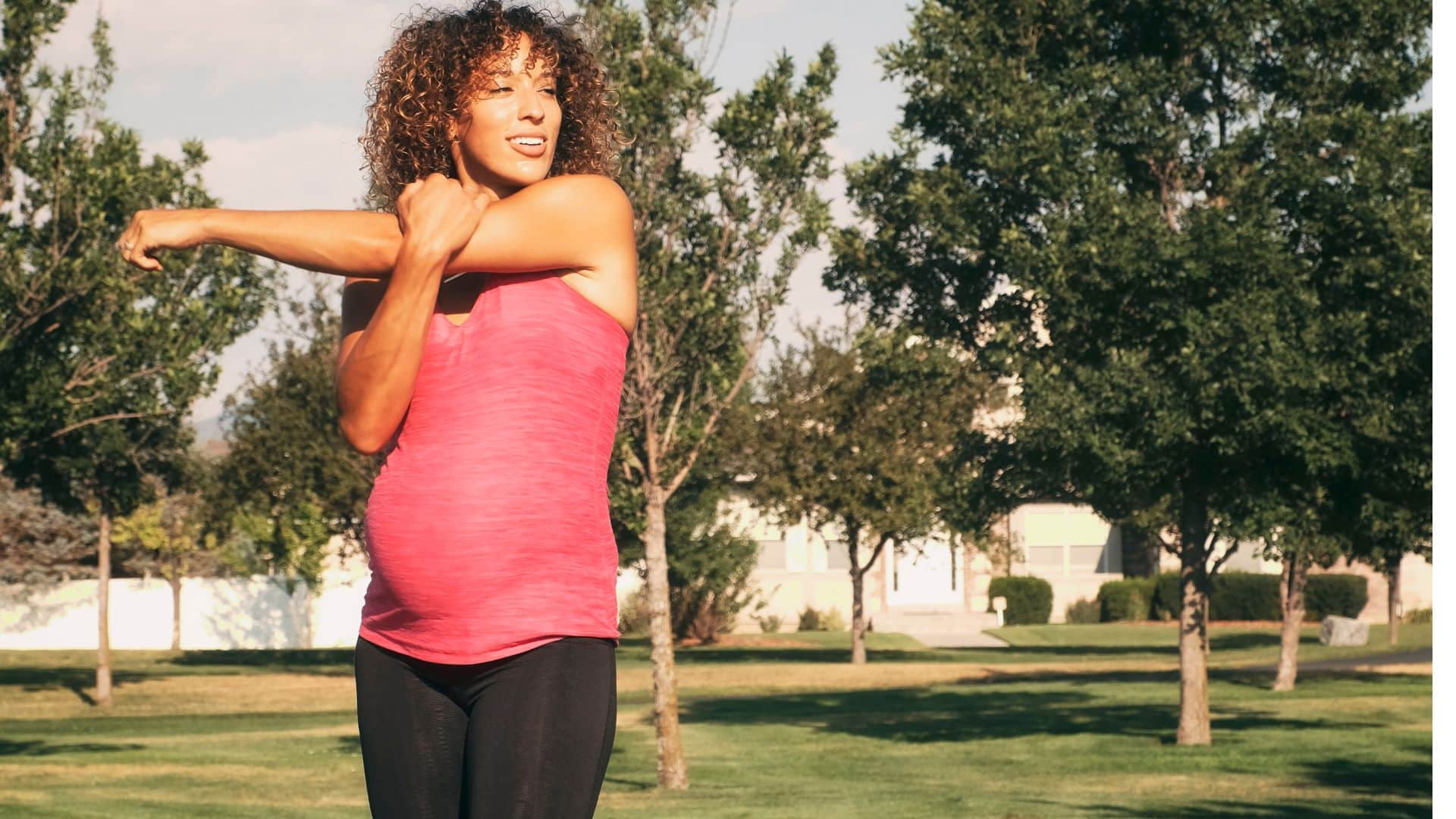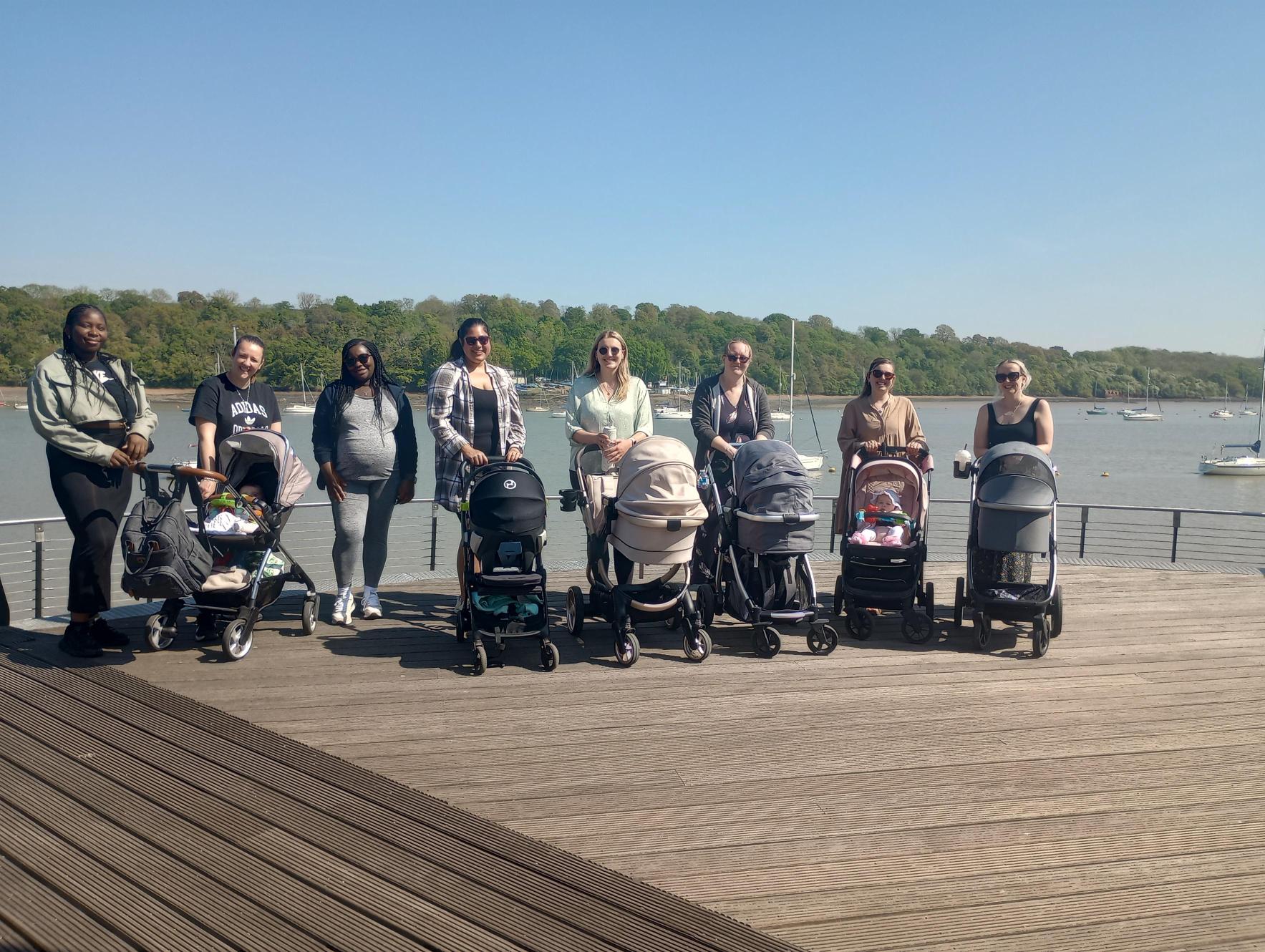Taking care of your physical health throughout pregnancy and after childbirth can help you to feel your best.
Your body goes through huge transition during each trimester, and in childbirth. Exercise can help to manage a lot of these changes.
Your body goes through huge transition during each trimester, and in childbirth. Exercise can help to manage a lot of these changes.

Maintaining a healthy body and mind can have a huge effect on your pregnancy journey.
The more active you are throughout your pregnancy, the easier it will be for you to manage all the changes your body will go through. It will also help you to cope better with labour, and aid in postnatal recovery.
Here are some common questions that you may have when it comes to exercise during your pregnancy:
Exercise during pregnancy is safe and good for both you and your baby. Your body goes through a huge transition during each trimester and in childbirth, and exercise can help to manage a lot of these changes.
Always speak with your midwife or health professional before starting any new form or exercise.
There are many benefits to exercise in pregnancy. These include:
Try to aim for at least 150 minutes of moderate activity a week.
That could be five, 30 minute walks, or a few longer walks during the week.
Strength training a few times a week can help maintain your strength and keep your body strong to cope as you progress through the trimesters.
Exercise is not dangerous for your baby. There is evidence that active women are less likely to experience problems in later pregnancy and labour.
Always speak with your midwife or health professional before starting any new form or exercise.
You should stop exercise during pregnancy and consult your midwife or GP if you experience any of the following:
Read more about exercise during your pregnancy on the NHS website.
Always consult your midwife or health professional if you have any concerns over moving during your pregnancy.

BumpClub Medway run walks across Medway during the week. You can meet other parents to be and new parents and get active with BumpClub walks.
If you’re pregnant or if you have recently had your baby, walking is an excellent way to keep active.
The pelvic floor consists of layers of muscles that stretch like a supportive hammock from the pubic bone (in front) to the end of the backbone (spine).
In pregnancy, as your baby grows and hormonal changes affect the pelvic floor, the pelvic floor muscles experience increased pressure which can contribute to leaking urine, lower back pain and pelvic organ prolapse.
This NHS video explains what the pelvic floor is and how, and when you should be doing these exercises.
Did you know strengthening your pelvic floor muscles during pregnancy can help to reduce your risk of leaking urine, as well as promote a faster postnatal recovery?

Eating well during pregnancy and beyond is not only good for your body, it also supports your baby’s growth, health and wellbeing.
Giving up smoking is one of the most important things you can do to improve your baby’s health, growth and development, as well as your long-term health.
Every cigarette you smoke contains over 4,000 chemicals, many of which are dangerous, so smoking when you are pregnant harms your unborn baby.
Cigarettes can restrict the essential oxygen supply to your baby. As a result, their heart must beat harder every time you smoke.
A new midwife-led programme called Quit for Two is now available at all main hospitals in Kent and Medway.
Quit for Two has specialist midwives who are trained to support women to quit smoking during pregnancy and save babies lives. Speak to your midwife to find out about this service.
Secondhand (passive) smoke harms your baby.
If your partner or anyone else who lives with you smokes, their smoke can affect you and your baby before and after their birth. You may also find it more difficult to stop if someone around you smokes.
Secondhand smoke can also reduce your baby’s birthweight and increase the risk of sudden infant death syndrome (SIDS), also known as “cot death”.
Babies whose parents smoke are more likely to be admitted to hospital for bronchitis and pneumonia during their first year.
